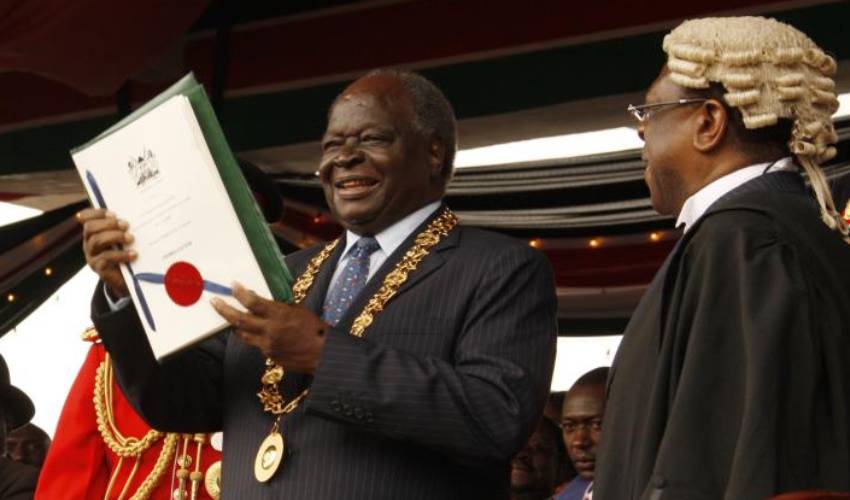×
The Standard e-Paper
Kenya’s Boldest Voice

Former President Mwai Kibaki displays a copy of the 2010 constitution at Uhuru Park, Nairobi. Looking on is then-Attorney General, Senator Amos Wako. [Courtesy]
Today, the 2010 Constitution begins a new decade of implementation. An 11-year-old is no longer a toddler, but one steadily climbing into young adulthood.